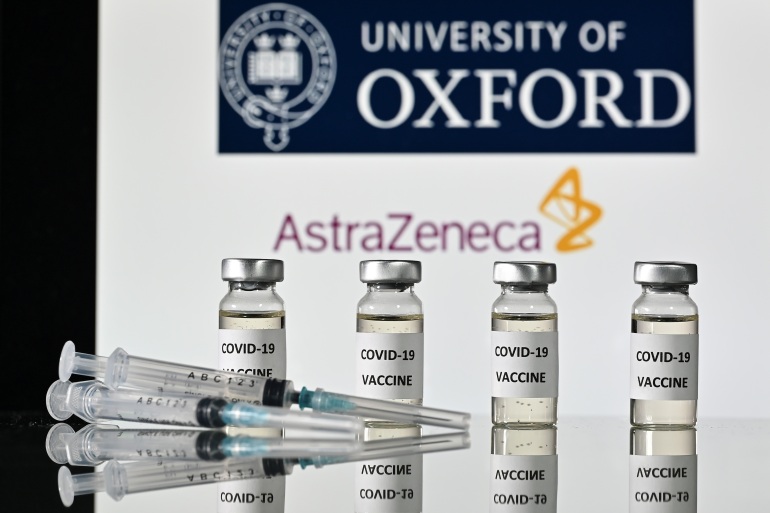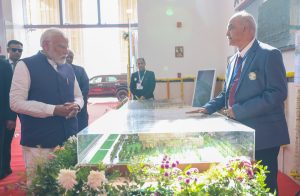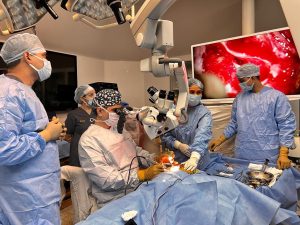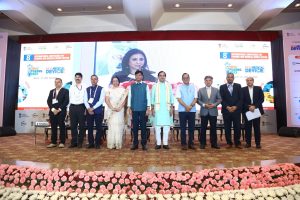UK marks Oxford/AstraZeneca Covid-19 vaccine’s one-year anniversary


LONDON: The UK is on Thursday marking the one-year anniversary of the approval of the Oxford/AstraZeneca vaccine to protect against COVID-19, also manufactured and administered in India as Covishield as part of a tie-up with the Serum Institute of India (SII).
British Prime Minister Boris Johnson credited the vaccine produced by scientists at the University of Oxford and manufactured by AstraZeneca with helping the world combat the COVID-19 pandemic and saving millions of lives.
Our fight against COVID in the UK and around the world would not have been possible without the Oxford/AstraZeneca vaccine, said Johnson.
Developed by brilliant scientists at Oxford and delivered on a not-for-profit basis thanks to AstraZeneca, this vaccine has provided 50 million doses to the British public and over 2.5 billion to more than 170 other countries. We can all be incredibly proud of and grateful for a jab that has saved many millions of lives, he said.
On December 30, 2020, the UK became the first country in the world to approve the Oxford University/AstraZeneca COVID-19 vaccine. Since then, over 50 million vaccines have been administered in the country and millions more around the world as part of manufacturing partnerships, such as the one with Adar Poonwalla-led SII in Pune.
Today marks one year since the UK made history by being the first country in the world to approve the Oxford/AstraZeneca vaccine a UK-made and government-funded vaccine which has been absolutely pivotal in helping to save millions of lives around the world, said UK Health Secretary Sajid Javid.
I’m incredibly proud of the role the UK has played in developing, researching and manufacturing ground-breaking vaccines and treatments during the pandemic, he said.
The Department of Health and Social Care (DHSC) highlighted early investment in the Oxford University team since 2016 and in their COVID-19 vaccines since March 2020, which paved the way for approval by the independent Medicines and Healthcare products Regulatory Agency (MHRA). The process was driven by the UK’s National Institute for Health Research’s (NIHR), which helped recruit thousands of volunteers from across the UK for Phase III trial and supported the researchers.
It’s a remarkable example of British innovation and scientific excellence please take advantage and get your vaccines as soon as you can to protect yourself this winter, said UK Vaccines Minister Maggie Throup.
Following UK government investment of more than 88 million pounds to help research, develop and manufacture the vaccine, around 2.5 billion doses were distributed at-cost around the world.
The DHSC said almost two-thirds of these have gone to low and lower-middle-income countries, including more than 30 million doses donated by the UK through the World Health Organisation’s COVAX initiative or bilaterally. The UK has announced that it will donate a further 20 million Oxford/AstraZeneca doses to countries in need next year as part of the government’s commitment to donate 100 million doses overall.
Tom Keith-Roach, President of AstraZeneca UK, added: I am quietly humbled and hugely proud of the work we have done together to get 50 million doses into people’s arms here in the UK and over 2.5 billion doses to people in over 170 countries globally in less than 12 months.
There remain huge challenges ahead, much vital work is still to be done, but in 2021 we achieved remarkable things and this should give us confidence and renewed hope for 2022.
The COVID-19 vaccination programme is dubbed the largest in British history, established at unprecedented speed, with thousands of vaccine centres set up rapidly.
The DHSC used the anniversary to flag the UK’s wider role in vaccine research, which provided results for three of the successful COVID vaccine candidates through huge Phase 3 trials for Oxford/AstraZeneca, Janssen and Novavax vaccines.
Source: Press Trust of India




